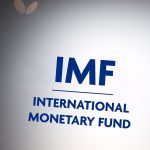Tunisia’s struggle and ours: battles in the same war
As an anti-cuts campaigner in the UK fighting rises in tuition fees or corporate tax dodging or the closure of a local library or redundancies at a city council or (hopefully) all of the above, it wouldn’t be surprising if you have been so busy over the last few weeks that events in Tunisia have passed you by. And now that media coverage of the protests is more prominent, it still may fail to immediately resonate as your fight too.
The historical and political context of the series of protests over food prices and unemployment in Algeria, Sudan, Jordan, and the overthrow of the Tunisian president on Friday, is vastly different to the UK. But the fight to resist the dominance of neoliberalism and its iniquitous effects is a thread that ties together protests over library closures in Liverpool and rising food prices and unemployment in Jordan.
In Tunisia, protests were triggered by unrest in Algeria, food prices, unemployment and Mohammad Bouazizi, a 26 year old unemployed graduate, who set himself on fire in December after the police stopped him from making a living by selling vegetables because he didn’t have a permit.
The military responded by beating, torturing and killing protesters. The protests escalated and began to include the call for the resignation of president Ben Ali whose 23 year rule has been characterised by harsh repression of political opposition and dissent. Last night the president and his family fled the country.
The rising prices of basic foods like bread, sugar and milk that is triggering protests across the developing countries are likely to spread and challenge other repressive regimes. Global food prices are now at their highest since 2008, when there were food riots in more than 30 countries in the global south.
The cause of these rises is not – as some would have us believe – due to a global shortage of food. The short term and dramatic prices rises that we are seeing now are due to deregulation that allows banks and hedge funds to speculate at record levels on food on the commodity markets which is pushing up the real price of food in real markets.
In the UK, people are already feeling the pinch from rising inflation which can be attributed to a great extent by rising food and fuel costs. This will affect people already on low-incomes, and increase as unemployment increases and the cuts begin to hit.
The neoliberal economic policies that we are resisting now in the UK were imposed in developing countries from the 1980s as Structural Adjustment Programmes by the International Monetary Fund and World Bank. Policies such as slashing the welfare state and public sector spending on health and education, deregulation and liberalisation; and privatisation of state-owned companies continue to be pushed and deepened to this day. The reason that we know that the introduction of such policies in the UK will cause deeper poverty and inequality is not theoretical: countries in the global south are the proof of the damaging consequences.
In Tunisia, one of the impacts of these policies has been mass unemployment. The education system is said to be throwing out well-educated young people, who have few options of gainful employment when they leave school or university, demonstrated by the fact that nearly a third of people under 24 are without a job.
Under the guise of Structural Adjustment Programmes, or the Big Society, the neoliberal agenda will lead to greater poverty, unemployment, inequality and injustice in our societies. It will also lead to protest and resistance that will challenge governments across the globe. Our campaigns to save a hospice in St Albans may seem far removed from the ousting of a dictator in Tunisia. But we are fighting the same battle and we must be more conscious of the commonality that brings us together. We must strengthen the links and understanding, draw inspiration from one another, share tactics, and fortify solidarity to build a global movement that fights together and wins.


Think Latin America, IMF rule in the 90s, led to victories for the left in 00s.